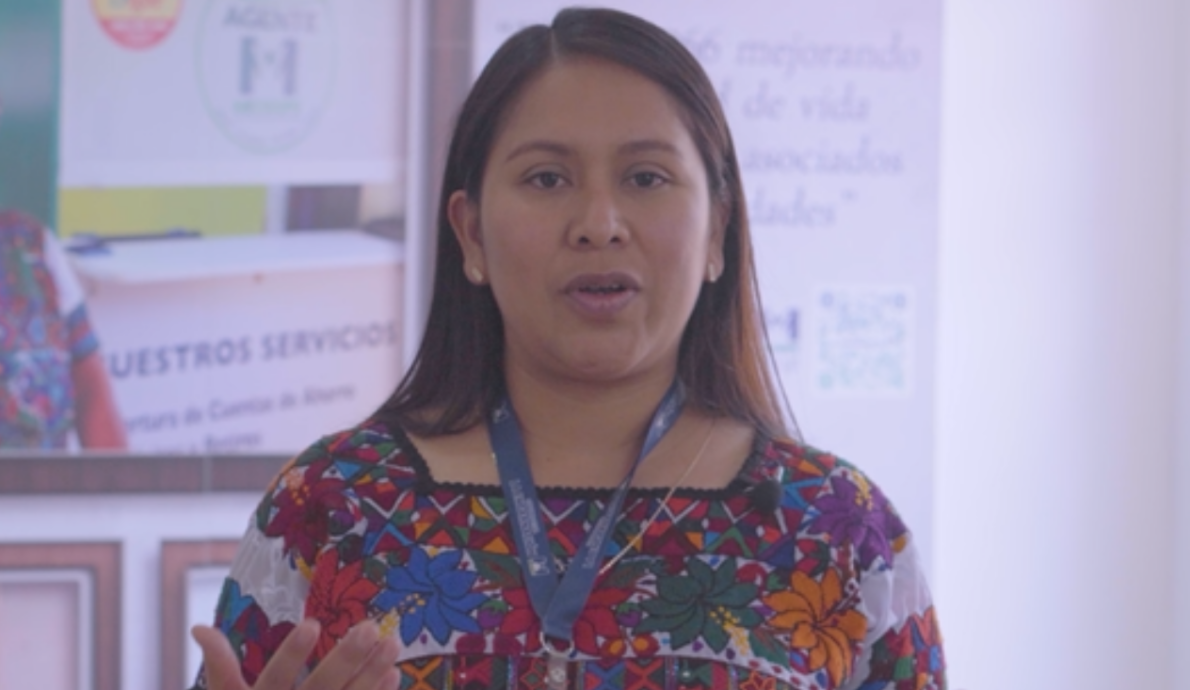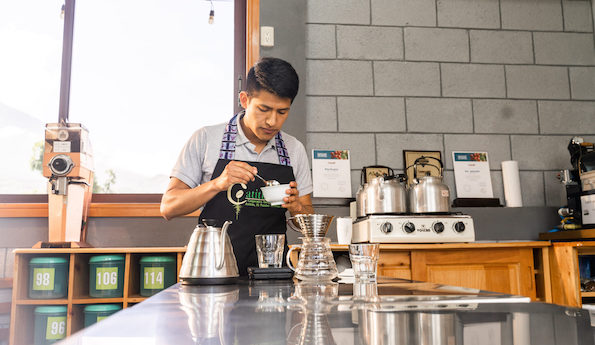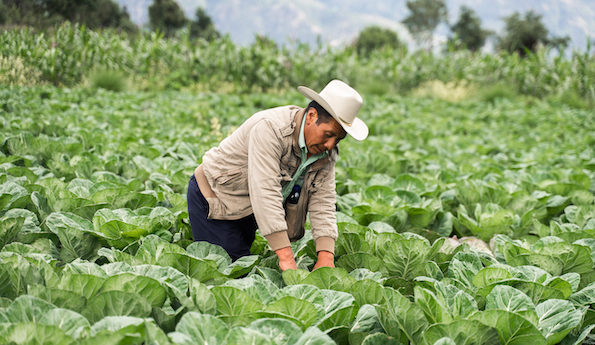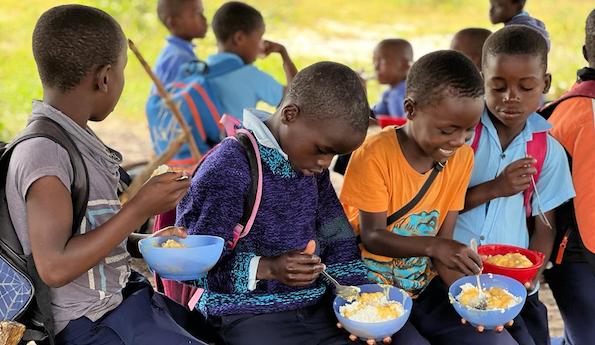In 2012, our team in Guatemala planted the seeds of the PROCAMPO (Productores del Campo Más Prósperos y Organizados) Food for Progress project as a means of helping rural agricultural communities in the Western Highlands create better livelihoods for themselves and future generations. More than a decade later, we’ve seen substantial progress made that has enabled the communities to thrive.
As the USDA-funded project draws to a close, we hosted a learning event on June 13 to reflect on how its activities impacted participants and their communities. The project aimed to strengthen the ability of rural communities to increase their agricultural production and improve their livelihoods by increasing farming knowledge, providing tools, and building markets for agriculture. The event celebrated the project’s achievements and lessons learned.

Rony Jimenez works in a greenhouse in Santiago Atitlán, Sololá. Farmers participating in PROCAMPO received loans to boost their agricultural productivity.
The event took place in Guatemala City where over 60 attended in person and more online. Speakers included representatives from diverse organizations such as Anacafe (the national coffee grower’s association), the Federated Cooperation of Credit Unions (MICOOPE), USDA, the Guatemala Ministry of Agriculture, Counterpart’s president and CEO Dr. Ann Hudock and chief of party Maria Ester Bucaro, Agronomy Faculty of National University of San Carlos, University of California, Davis, along with program participants and other participating cooperatives and organizations.
In total, 468 producers’ groups, private enterprises, associations, women’s groups, and trade and community-based organizations participated in project activities. Nearly 10,000 smallholder farmers received financial loans valued at $60.5 million.
“After twelve years of project implementation, benefiting over 50,000 farmers and generating over $60 million in agricultural credit, it was crucial to gather insights and lessons learned from implementing partners, strategists, and participants in the Western Highlands of Guatemala,” said Oliver Castillo, monitoring and evaluation coordinator for the project, explaining the rationale behind the learning event.

Counterpart staff with our partner Anacafe (the national coffee grower’s association) during the learning event in Guatemala City.
As with any new project, the team in Guatemala had to overcome several challenges on the technical and operational fronts. Despite the obstacles, the program achieved positive results, including a 50% increase in sales made to international buyers after certification as well as 95% of producers intending to renew and maintain agricultural certifications.
Since its inception, the project has graduated 420 extension agents from the Certificate Rural Extension Program, provided 191 in-kind and cash grants for improved agricultural productivity, and facilitated 58 contracts signed between buyers and sellers to support producer groups to expand sales and establish new markets. As a result, coffee producers earned $6.2 million in sales from 2,806 metric tons of coffee. Additionally, 54,972 coffee producers and smallholders were trained on agricultural sector productivity or food security. These project activities led to the creation of 2,946 new jobs. In total, 72,663 individuals benefited directly from USDA assistance.
“Guatemalan communities served by the program have experienced comprehensive benefits. The project’s outcomes have fostered progress across the entire production chain of the supported activities creating a ripple effect of social support in the intervention areas,” Alberto Pascual, the project’s agricultural grants and training technician, reflected. “This has led to increased community development and strengthened organizational capacities, generating opportunities for a better quality of life for participating Guatemalans.”
The team conducted a survey from program participants and the results were key to our learning briefs, which lay the foundation for future programs. The project is scheduled to end in September, but the work and the impact that our partners have made will result in a positive and sustainable Guatemala for years to come.






